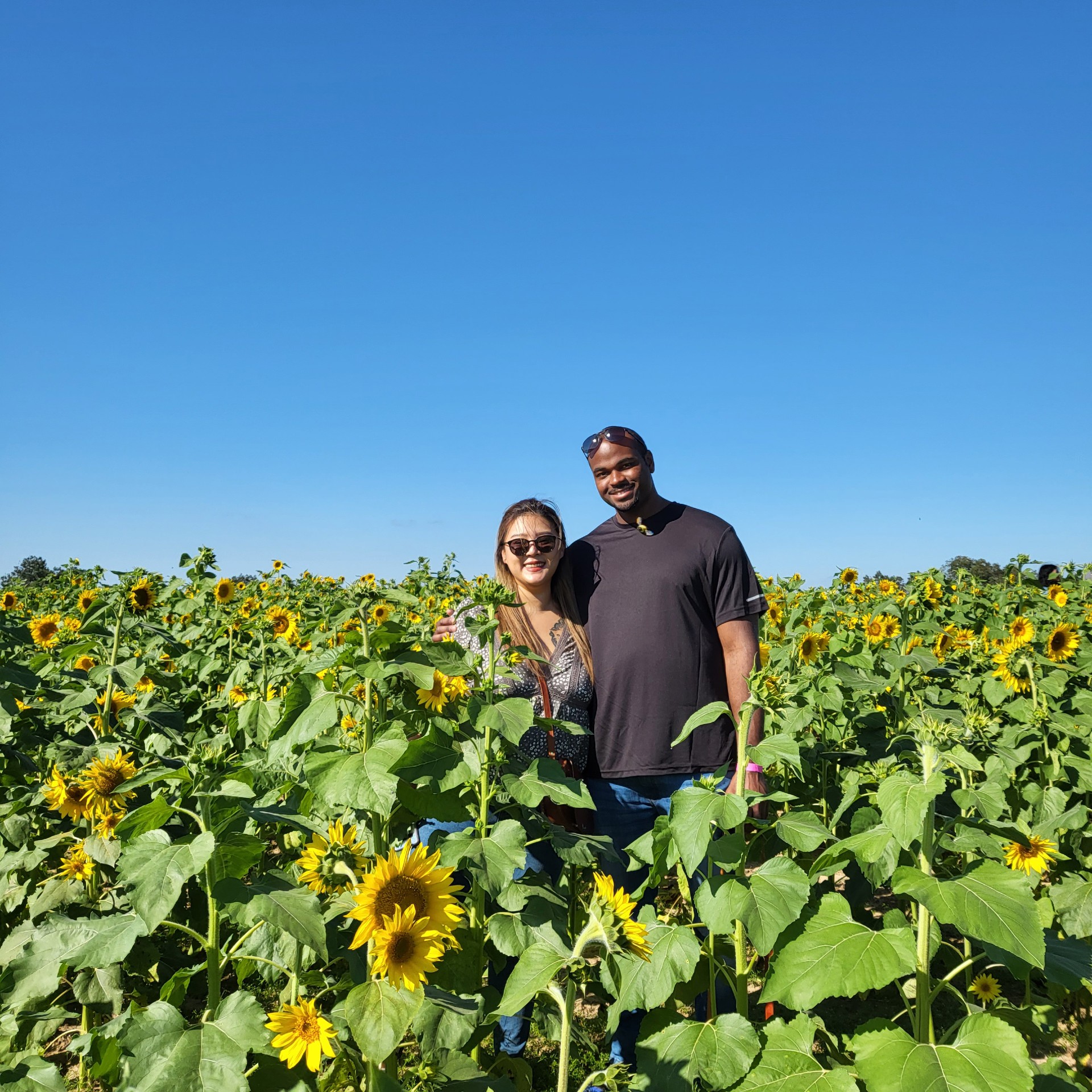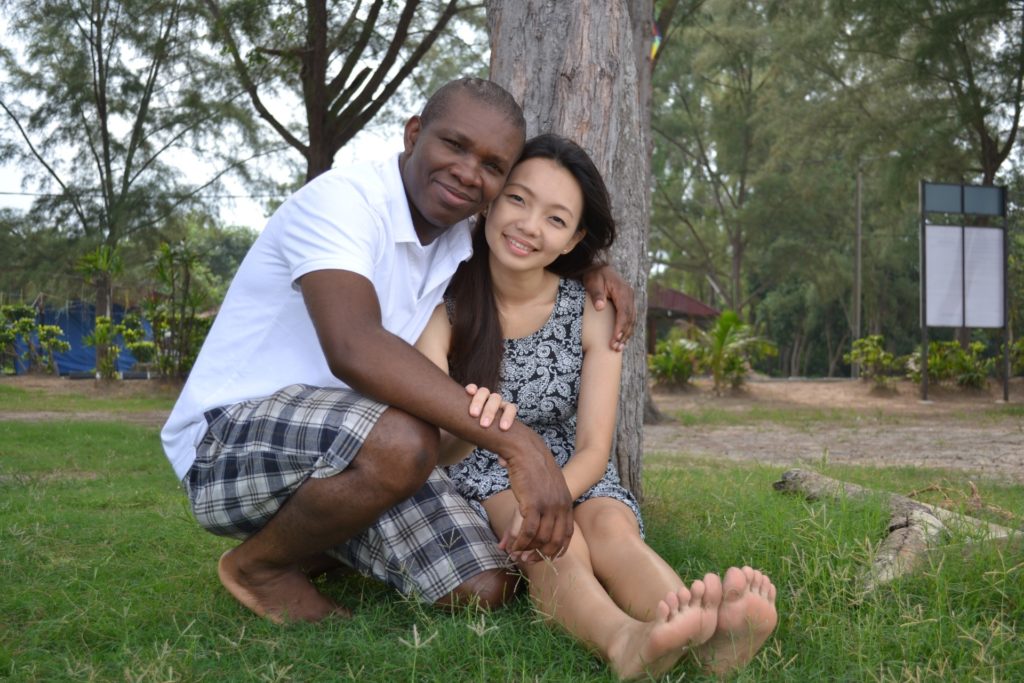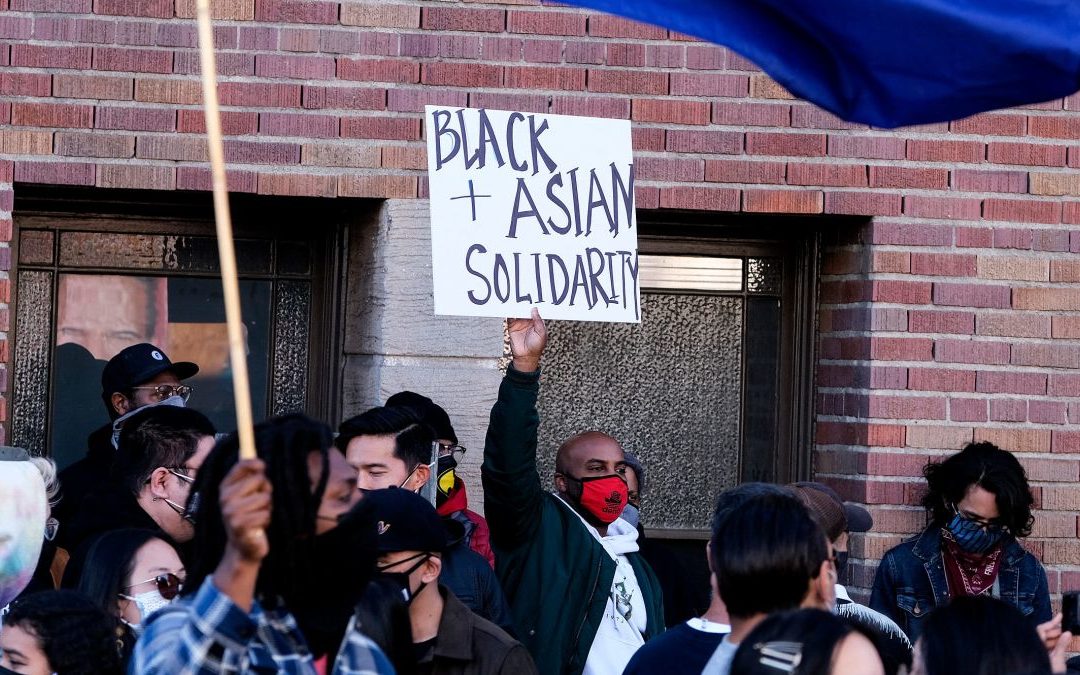By Jungmi Kim and Caitlyn Chun
The Black Lives Matter (BLM) and Stop Asian Hate (SAH) movements not only underscore the complicated issue of racial relations in the US, the ingrained systematic racism but also inter-group bias and tensions between Asians and Blacks. From the LA riots to the model minority myth, to Asian Americans being brutally attacked by black men during the pandemic, the relationship between the African American and Asian-American communities has never been an easy one.
To examine the interrelation of BLM And SAH, many modern social research has been conducted to evaluate how Asians react to the BLM movement and vice versa. However, interestingly enough, there aren’t enough studies done to indicate Blasians’ opinions on both movements.
Blasian, refers to Black Asians, or Afro-Asian, which is typically defined as people of mixed Black and Asian origin. Blasian couple is also a term used by Black and Asian who are in a relationship with each other. In this interview, Sparkle Insights takes a closer look into how two Blasian couples view BLM and SAH and how these two races interact with one other.
Jungmi (Korean) and Robert (Black American)

Jungmi met her husband (Robert) in the city of Pyeongtaek, South Korea in 2018. Jungmi was born in Korea and grew up in Incheon, while Robert is a Puerto Rican American who grew up in the Bronx, New York. As an aircraft electrical engineer in the U.S. Air Force, Robert had been assigned to Korea for work for 2 years.
Jungmi described that she had a crush on Robert at first sight. “I relocated to Osan for my real estate business and met Robert at a Japanese style curry restaurant in front of the Korean Osan Air Force base. It was an instant attraction, so I asked for his phone number, and we dated not long after.”
After 10 months of relationship, Jungmi had decided to take Robert home to meet her parents. Recalling their mixed feelings when her parents had heard this, she said, “My father, Dongcheol was fine with our relationship because he had grown up in the area near Incheon where the U.S. Army station is based so he is more tolerant of the presence of Americans and had not appeared surprised when I brought an American home.” Jungmi’s mother, Youngim, on the other hand had been against their relationship because of the concern that her only daughter would leave them and move to America with Robert. Other concerns she had also included the language barrier that they would have with Robert and the potential mixed-race prejudice that her future grandchildren would face in Korea. Thanks to Jungmi’s father, he had eventually comforted his wife and encouraged her to support Jungmi’s decision. After meeting Robert and giving their blessings to the couple, Jungmi and Robert married after a year of dating. Likewise, Robert’s family were pleased with their marriage, embracing Jungmi into their household without hesitation. This was due in part to Robert coming from a mixed cultural family background with his mother being Black and his father a Puerto Rican.
When discussing how Koreans perceive interracial relationships. Jungmi stated that “Many Koreans are still prejudiced against foreigners, and many Koreans are uncomfortable with interracial relationships. Most of my friends were surprised to know that I dated and married to a black guy. They had also felt sad that I had to leave Korea but were happy that I have found my love.”
For Robert, he is more wary on the topic of race and cultural relations as he respects and appreciates diversity. Because racism still persists in the U.S., he has tried to explain the history and causes of racism in the country to Jungmi with the hopes that she will understand that this is a sensitive subject. Despite so, it is difficult for Jungmi to comprehend the gravity of systemic racism in the U.S. because of the monoethnic makeup of Korea. Jungmi noted that she sometimes thinks that Roberts exaggerates on such issues.
The couple relocated to the U.S. in May 2020 during the peak of the pandemic. Being “fresh off the boat” from Korea and thrust into the pandemic and social movements of Black Lives Matter and Stop AAPI Hate, she gradually saw racial issues that ravage the U.S. society. She commented, “Racism is deeply ingrained in the United States and all over the world. Nothing can resolve these inequalities quickly with ease, but I believe that continuous education can foster a society free of racism with minority voices speaking up and being heard. No race or individual is better than the other.” Robert added, “All acts in the movement should be done peacefully and with good intentions.”
Caitlyn (Malaysian Chinese) and Grant (African American)

Caitlyn and Grant, a native of Nigeria, met in 2008 in Malaysia while Grant was studying engineering at SEGI University Kota Damansara Malaysia. They met at a church and started dating in 2010. Shortly after they started dating, Grant won the green card lottery and moved to the United States. Caitlyn then went to work in Singapore. Before marriage, they were in a four-year long-distance relationship.
Grant came from a large Christian family in Nigeria, and Caitlyn is a third generation Malaysian Chinese whose grandparents immigrated from China. Her family still maintains traditional Chinese culture to this day. Things weren’t smooth for the couple at first. Malaysia is a country of diverse ethnic groups with Indian, Chinese, and Malays being the largest three. Blacks in Malaysia have yet to be generally accepted, especially in Malaysia’s Chinese community. Grant mentioned, “Living in Malaysia as a Black person is difficult, though we are more welcomed by the Indian community, but there is still xenophobia among Chinese and Malays, so it was difficult for me to blend in.” Caitlyn mentioned that the greatest problem for Chinese and Malays to embrace outsiders is because of the language barriers and the cultural differences.
When Caitlyn introduced Grant to her family, her father had reservations about the union while the mother was open minded and wants her daughter to be happy. Indeed, Grant’s efforts to socialize with Caitlyn’s family eventually moved the family and opened doors. Now Caitlyn’s parents look forward to his visits. They like to call him for health-related questions although they don’t speak English. Caitlyn would serve as the translator, which she enjoys, to help her parents and husband to make the connection while her husband made it a necessity to learn Mandarin to so that he can communicate with his parent’s in-law.
Grant’s family accepted their relationship with love, except for one of his aunts that wanted to arrange a Nigerian lady of the same tribe (IBO) for him to marry, because she believes that having a wife from the same tribe will make the husband happier. However, when the couple visited her during their short visit to Nigeria, she was pleased and warm to them. Grant’s family want their children to be happy so they supported whatever choice their son makes that will bring him happiness. Caitlyn indicated that “My husband is very close to his grandma and mom. His family and community are blessed with so many old people, which is lovely. They accepted me very well, which made me feel very welcomed.”
In 2014, Caitlyn and Grant married. They’d spoken about the future and where they wanted to live. Because her husband was subjected to racism in Asian countries, they chose to relocate to the United States, where they would both be considered minorities but would still be accepted. After settling in the U.S., Caitlyn saw a different perspective on racism where was she previously had difficulty understanding her husband’s experience with racism back in Asia. For example, when they go out together, people would choose to talk to her husband instead because they assumed Caitlyn didn’t speak English.
On the topic of Blasian, Grant said, “I am a neutral person. My way of life is for anyone to do what makes them happy, so I accept Blasian very well even though I know the challenges that come with the relationship. But I am comfortable so as long as we are happy.” Caitlyn added, “In my opinion, Blasian means a lot to me despite putting little consideration into it at first. However, when I began to live with my husband and engaged each other’s cultures on a deeper level, I have come to see intercultural values in a mixed relationship and how families and friends from each side to accept and respect someone who was from a different culture. It creates and strengthens the connection to both African and Asian culture, at least in our social circle.”
As for Black Lives Matter, Grant also commented that “The BLM movement started as a pretest against police brutality and racial violence on black people in America which then turned into a global movement when the world had witnessed the brutal killing of George Floyd. Many of these cases have gone unnoticed, until that bold little girl recorded and shared the video. In my opinion, Black lives matter, Asian lives matter, all lives matter. Therefore, I support Black Lives Matter and Stop Asian Hate. In fact, everyone should be treated the same. Justice is equal to all however difficult it may be. Therefore, All Lives Matter and should be treated that way. I know is difficult to be realistic, however, justice should be equal.”
Although the relationship between African Americans and Asian-Americans communities has not been an easy one due to cultural differences and different immigration journeys, both Blasian couples’ experience demonstrates that establishing a relationship is effortful, but it is achievable. Understanding, learning, and accepting one other with love and kindness are essential. Lastly to establish a sense of solidarity in our country, Black and Asian American communities must work together and have more open dialogues.
To learn more about Sparkle Change and what we we do, contact us. Join our panel to get started: https://www.sparklechange.io/sign-up/. Our surveys are available in English, Chinese, Korean, and Vietnamese.

